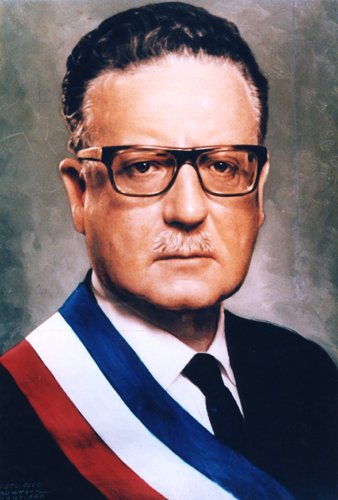Pablo Neruda’s Poetic Struggle for Social Justice
September 11 was the anniversary of a violent event which brought about the modern world: the CIA-backed overthrow of Chilean president Salvador Allende in 1973. While the more recent attack on the World Trade Centre was a horrific tragedy and it has shaped many government and public attitudes, I would argue that 9/11/73 was an even more profound turn in world history.
[pullquote] The continent of Latin America was torn apart by torture, concentration camps and death squads [/pullquote] A popular, democratically elected leftist was overthrown in favour of a violent dictator backed by the United States and the continent of Latin America was torn apart by torture, concentration camps and death squads while the corporation-friendly economic policies pushed by the United States on Chile have now become an economic consensus for the whole world, resulting in poverty, inequality and suffering. One of the first shouts of resistance against the brutality of the Pinochet regime came from voices of mourning: at the funeral of Chilean national poet and avowed warrior against oppression and injustice Pablo Neruda.

Neruda was born in a small town in Chile in 1904. In his early life the young man, born Ricardo Basoalto before he took his pen name, witnessed much tragedy including the death of his mother from tuberculosis. But beyond individual tragedy the young Neruda was quickly awakened to the broader societal tragedies of poverty and oppression. His father was a railway worker with whom Neruda would often travel, witnessing the suffering of working men and women and the poverty in which they toiled.
Neruda’s artistic awakening was intertwined with his awakening to progressive social causes and the same passion and fire drove them both. When Neruda later moved to Santiago, Chile’s capital, he divided his time between studying, writing poetry and associating with a number of student anarchists who furthered his political education. When he became a cultural diplomat to Republican Spain for the Chilean government he saw progressive forces destroyed by Fascist troops as well as furthering his art and befriending renowned intellectuals such as Spain’s Federico Garcia Lorca.
The pressures of the Cold War would then drive the radical Neruda underground until he was eventually driven into exile from his home country. Neruda would return only as progressive and leftwing forces were gathering moment in Chile in the late sixties.
The poet, by now already world renowned and highly acclaimed, stood as the Communist Party candidate for the presidency of Chile, although he would eventually concede the position to the socialist candidate Salvador Allende. Neruda became a whole-hearted supporter of and close adviser to Allende, even as US backed anti-communist forces attempted to oust him from power.
Neruda would die not long after Allende was brutally overthrown but the occasion of his funeral still served to inspire hope and resistance for the people of Chile. [pullquote] Neruda reminds us that poetry is not merely an inert and beautiful thing to be appreciated, but that its flame of beauty can give light and hope to the oppressed and it can power an engine of mass resistance [/pullquote]
Today many view “the artist” as floating above our world of petty material concerns, only interested in beauty and not with the affairs of politics or the lives of working people. Neruda reminds us that poetry is not merely an inert and beautiful thing to be appreciated, but that its flame of beauty can give light and hope to the oppressed and it can power an engine of mass resistance which can change the whole world.
Neruda tells us that the role of the artist is not merely to catalogue or beautify the contents of the world, but to change them for the better. In a world oppressed by unjust government, bloody wars and economic injustice Neruda tells artist to turn their cries of mourning into speeches of defiance, not to merely use our poetic voices to cry for what is to destroyed, but to use them to articulate the new and hopeful vision that will replace the old world. As Neruda wrote:
And you will ask: why doesn’t his poetry
speak of dreams and leaves
and the great volcanoes of his native land?
Come and see the blood in the streets.
Come and see
the bloods in the streets.
Come and see the blood
in the streets!

